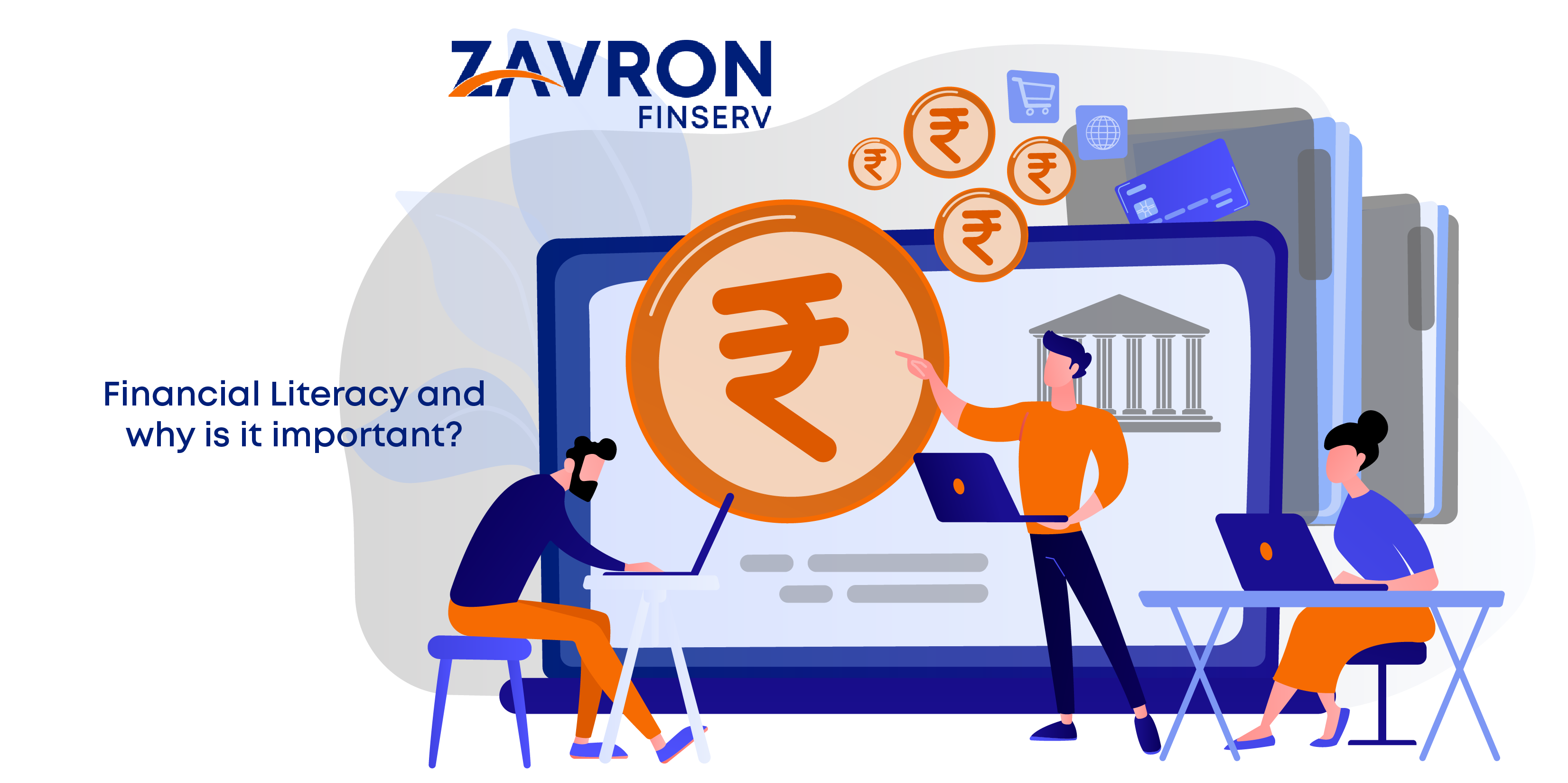
Feb 19, 2021 ●12 min read
Financial Literacy and Why is it important?
A report suggests that the Financial Literacy rate in India is just 24 percent. With a count of around 17% of the world population, the financially literate population is really thin and we need to bring it to the fore.
Financial literacy enables us to make rational financial decisions and manage money better. It is important for people to be financially aware of the available resources and how they can utilize, invest and manage them for a better future. In this article we will have a look at what is financial literacy, why is it important to be financially literate and how can you be financially literate? Stay with us till the end to improve your financial skills.
What is financial literacy?
Financial literacy is nothing but a sense of understanding the effective use of finances. The financial skills are inclusive of budgeting skills, investing skills, credit management skills, and overall financial management skills. One must be aware to plan their finances such that they can pay off debts, understand the importance and risks associated with investment options, and plan their finances around them.
While we talk about financial literacy, we cannot move ahead without mentioning the abundance of credit options we have in the market. With EMIs and attractive loan facilities, financial literacy has become all the more important part of our lives, for more informed decisions. To begin with, a financially literate individual should have an idea of concepts including money, compound interest, returns, and cost opportunity.
Why is it important to be financially literate?
Financially literacy helps individuals to make major financial decisions, makes them financially responsible, disciplined, and capable. Financial literacy has a direct impact on our lifestyle choices as well. An individual becomes aware of saving and investment options and looks out at opportunities to carefully analyze them and bank on them. Such individuals save themselves from financial frauds and duping as well. The major components included in financial literacy revolve around - Budgeting, Debt, Investing, and Saving. Let us have a look at each aspect in detail for better understanding.
Budgeting
A life-saving skill, budgeting is an important aspect of an individual’s financial capacity. Creating an actionable plan, allocation of money to tasks, wise spending's, and careful record maintenance are key skills required for budgeting. The end goal for budgeting is to have more income than expenses so that saving and investment options can be explored to a great extent. When budgeting, people back themselves financially for short, medium, and long-term expenses.
Debt
Taking up loans is not a bad option but not paying them off in time and mismanaging loan options is a huge problem. A financially literate individual differentiates between expenses and carefully manages their debts to not drown in heavy debts unnecessarily.
Investment
Even if you are not spending much or not paying off any personal loans, if you are holding back your money in bank accounts, you aren’t making a good investment out of it. Financially literacy enables your thought-process to explore avenues and invest in them for a financially secure and happy future. It is all about building wealth, achieving financial goals, and being prepared for any unprecedented events to live a peaceful life.
Savings
Another hand to investment is savings. It ensures your financial wellness, and achievement of financial goals. You tend to learn financial discipline with the habit of saving and not overspending on the available resources.
Bill Payment
Bill payment is the most important aspect of financial literacy. You must always prioritize bill payments, credit bill payments, and other pending dues. The habit of regular payment will establish a sense of discipline in an individual.
How to be financially literate?
Financial literacy starts from the basics. Here are a few ways you can be financially literate and choose to secure your future with good financial decisions.
1. Start by studying and tracking your income, expenditure patterns with the help of your monthly and annual financial statements.
2. Next, manage your bills. Choose auto-debit options when the bills are recurring in nature, set up reminders for those that are not on auto-debit.
3. Maintain your credit score in case you apply for an Instant Personal Loan. Those who have a good credit score are usually offered competitive interest rates and loan options.
4. Reduce your unnecessary spendings and try to increase your income sources.
5. Start saving and investing. Make financial goals and start looking at investment options, make it a habit. Form a strategy and start investing today.
FAQs
What are the key components of financial literacy?
Ans. The key components of financial literacy are; income, expenditure, savings, and investments.
How do you gain financial literacy?
Ans. Gaining financial literacy is all about financial awareness and good decisions. Follow the steps mentioned above to achieve financial independence.
What is the basic skill set required for financial literacy?
Ans. A basic skill for financial literacy is to include personal financial management, budgeting, and investment habits.
How does financial literacy affect a person?
Ans. financial literacy affects your financial situation in current times as well as the future. Good financial decisions help in having a safe, happy, and financially sound future.
Quick Links:
Instant Business Loan | Home Renovation Loan | Medical Loan | Marriage Loan | Apply Now

LICENSED BY RBI
ZAVRON FINANCE PVT LTD
RBI License no.:- N-13.02268
CIN:- U67100MH2017PTC292183






